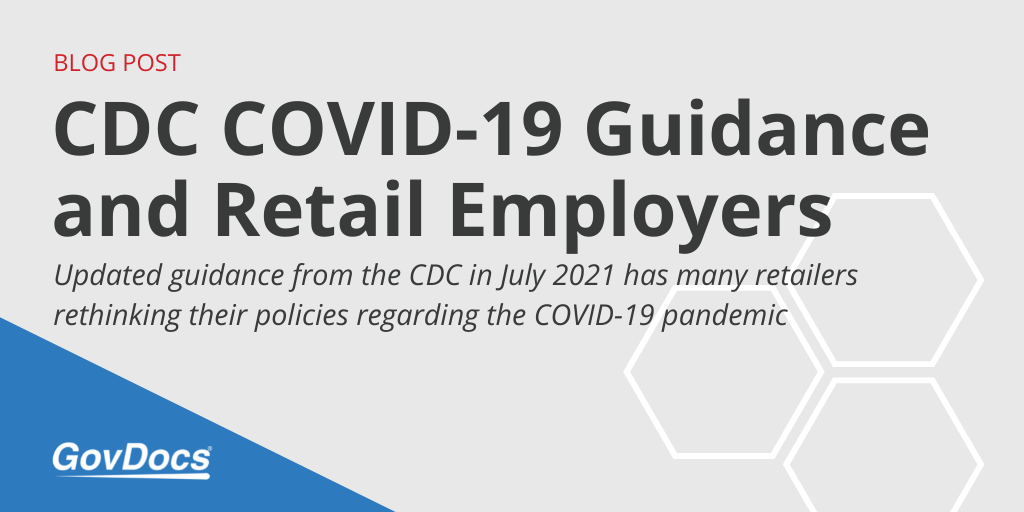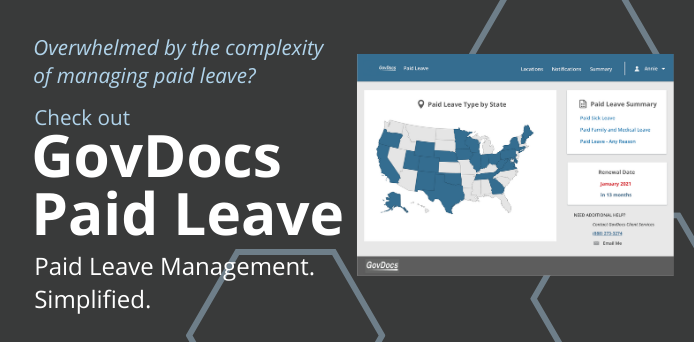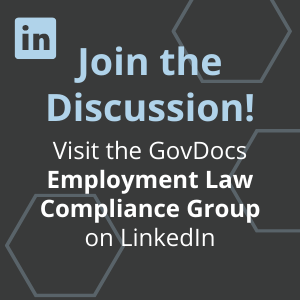EMPLOYMENT LAW NEWS
CDC COVID-19 Guidance and Retail Employers
By Kris Janisch
Published Aug. 12, 2021

The difficulty of the CDC guidance is that it’s tied to COVID-19 hotspots by county, meaning a retailer could have multiple stores across the U.S. with differing policies.
As the Centers for Disease Control and Prevention (CDC) provided new COVID-19 guidance regarding masks, employers in the retail industry have a new, though familiar, set of issues to consider.
The rise of the delta variant prompted the CDC in late July 2021 to issue new COVID-19 guidance, saying even fully vaccinated people should wear masks indoors in places with high transmission rates.
Retailers have been among the industries most impacted by COVID-19 regulations. And while most jurisdictions have been hesitant to reimplement measures such as mask mandates and occupancy restrictions, some companies have opted to revert to protocols they had in place at the height of the pandemic.
Ultimately, employers in the retail industry must weigh risks, geography, the nature of their business and other factors to determine what steps to take.
Retailer Reaction to CDC Guidance
While focused on individuals rather than employers, the CDC guidance has nonetheless impacted the approach to safety procedures for retail employers.
Shortly after the CDC’s recommendation that vaccinated individuals should wear masks indoors in places where the virus is surging, the National Retail Federation released a statement.
“Public health and safety is always the number one priority for retailers large and small. To be sure, retailers will continue to follow the guidance of the CDC and other public health experts to protect our associates, their families and our customers. We want every business to remain open, we want to keep people employed, and we want to ensure that consumers have access to the goods and services they expect and need,” it says. “It is truly unfortunate that mask recommendations have returned when the surest known way to reduce the threat of the virus is widespread vaccination. The CDC’s latest guidance underscores the urgency for more Americans to become fully vaccinated so we can all emerge from this pandemic.”
Many retail employers are now reviewing their policies in light of the new CDC guidance, and some have already taken action, including:
- Strongly recommending patrons wear masks
- Requiring employees to wear masks
- Requiring customers to show proof of vaccination
- Reinstituting social distancing protocols
- Providing incentives for workers, including paid leave and free rides, to get vaccinated
Still, most retailers have not opted to enforce the new mask guidelines for customers, even if they are encouraging them to do so or providing free masks at the door. Plus, COVID-19 fatigue has created additional problems for retail employers, including customer pushback or even violence due to mask requirements.
Government Mask Mandates
Despite the updated guidance, new mandates from jurisdictions regarding COVID-19 safety measures have been sparse.
Notably, New York City now requires proof of vaccination for indoor dining and gyms. Los Angeles County three weeks ago reinstituted a mask mandate, as did Oregon this week. And the situation in Texas, where some cities are defying the governor’s no-mask order, bares watching, as well.
But for the most part, retail employers are on their own in terms of what they want to do. Some large retailers have adopted a handful of the procedures that were in place in 2020, while others are still in the process of reassessing their approach.
With the onus now on employers to determine what, if any, changes they want to make, some retail leaders are urging the government to take a stronger stance. The United Food and Commercial Workers (UFCW), A union for 1.3 million food and retail workers, says officials have not gone far enough with the latest guidance.
“A national mask mandate is the only way we can finally take control of this virus and every retail CEO in the country must recognize that now is the time for all of us to mask up so we can keep our economy open and communities safe,” UFCW International President Marc Perrone said.
Lastly, though some states have banned mask requirements, these don’t generally apply to private companies.
“What we are seeing with state mask mandate bans is that they generally restrict the ability of local governments and political subdivisions from implementing mask mandates,” Alana Ackels, an attorney with Bell Nunnally in Dallas, told the Society for Human Resource Management. “Private businesses remain free to implement mask requirements for employees and customers.”
Related: Can Employers Mandate the COVID-19 Vaccine?
CDC Guidance for Retailers
The difficulty of the CDC guidance is that it’s tied to COVID-19 hotspots by county, meaning a company could have multiple stores across the U.S. with differing policies.
The largest retailer in the U.S. has taken a regional approach to mask mandates for employees in counties with high rates of COVID-19 cases, which covers about two-thirds of the country, according to the CDC. Other retail employers are using a blanket approach, requiring all staff to wear masks but only encouraging customers to do so.
Meanwhile, the official federal guidance for retailers has remained unchanged. COVID-19 guidance for retail workers from the Occupational Safety and Health Administration includes:
- Having all workers wear masks that have at least two layers of tightly woven breathable fabric, which employers should provide
- Telling sick workers to stay home
- Using drive-through windows or curbside pick-up
- Implementing physical distancing practices in all communal work areas.
- Installing plexiglass partitions at counters and cash registers
- Ensuring workers use the supplies necessary for good hygiene practices
- Routinely cleaning and disinfecting surfaces and equipment
- Providing workers and customers with tissues and trashcans
- Training workers on COVID-19 policies and procedures in a language they understand
- Ensuring policies that encourage workers to report safety and health concerns
While many retailers continued these practices after the pandemic began to fade in late spring 2021, the increase in COVID-19 cases due to the delta variant could make these procedures more commonplace.
Conclusion
The latest guidance from the CDC has already prompted policy changes from some of the largest retail companies in the U.S.
Whether retailers opt for a regional, county-by-county approach to mask requirements or an overarching policy, there are several factors to consider — geographical locations of stores, temporary policies, staff training and more.
As government officials continue the push for more Americans to be vaccinated, the current guidelines could be a blip on the radar. But if the pandemic-era has taught retail employers anything, it is to be flexible and prepared for potential changes.
This Employment Law News blog is intended for market awareness only, it is not to be used for legal advice or counsel.
Keep Informed
with GovDocs Employment Law News
Learn More About GovDocs
What is GovDocs?
GovDocs simplifies employment law compliance for large, multi-jurisdiction employers in the U.S. and Canada. The GovDocs software platform integrates three solutions in one convenient place to help you master the employment laws impacting your business. Whether you manage a postings, minimum wage or paid leave program, our products cut through research time, provide proactive insights into the everchanging landscape of employment laws and reduce the risk of noncompliance. The company is headquartered in St. Paul, Minn.
Have fewer than 30 locations?
The GovDocs Poster Store simplifies posting compliance for employers with less than 30 locations across all industries, offering a variety of posting products to meet your labor law compliance needs.




